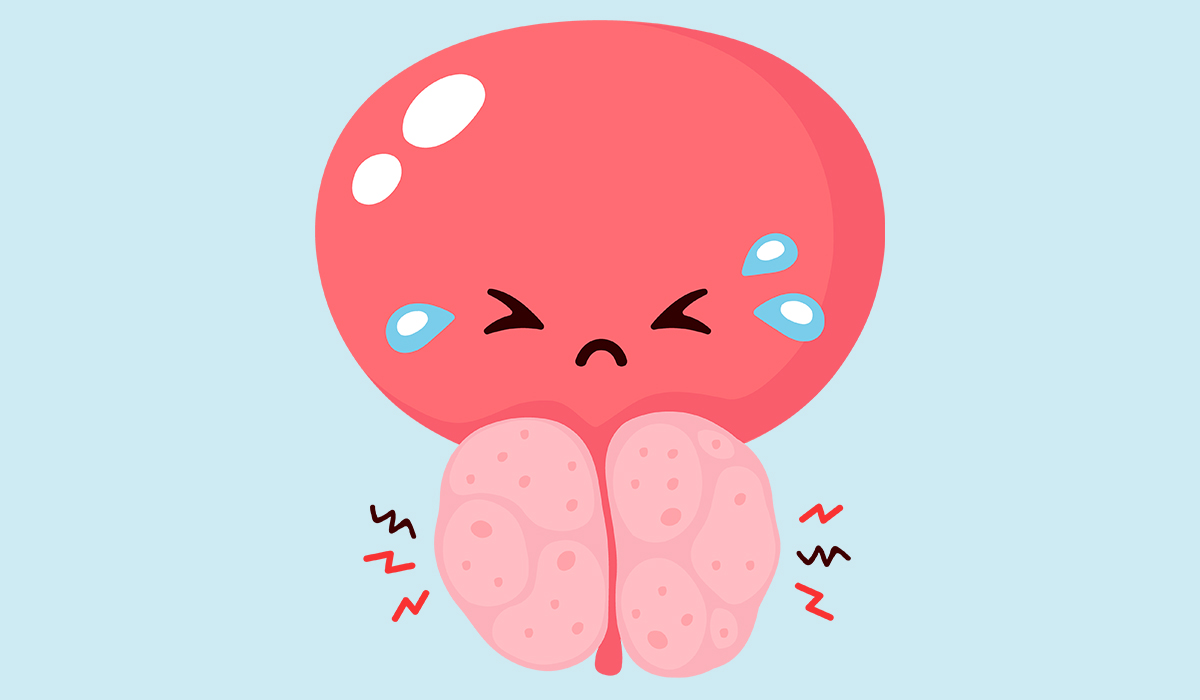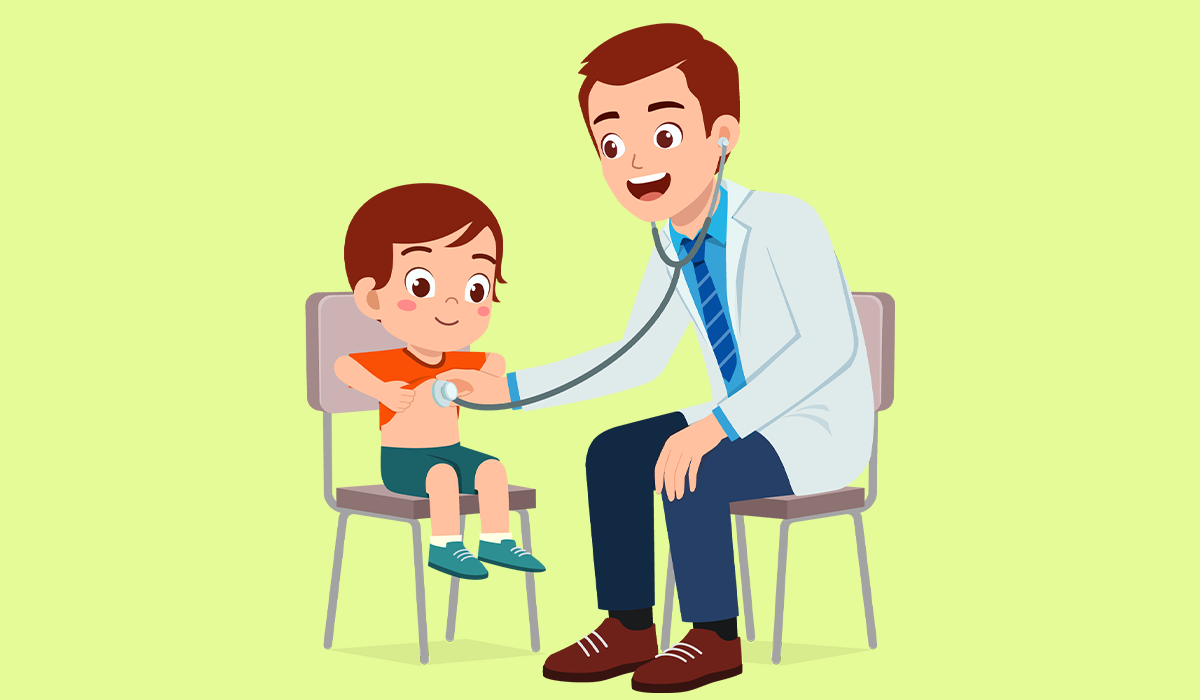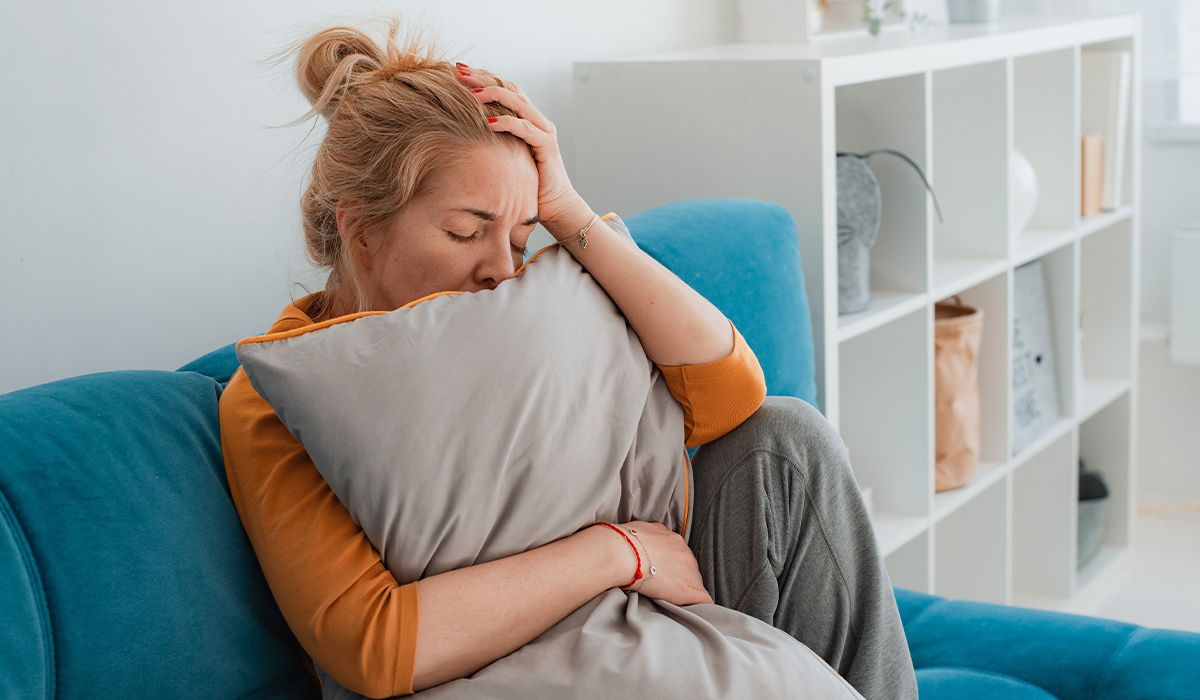Currently, the most famous theory of Lazarus and Folkman is based on the relationship between man and his environment, which lasts throughout his life and is constantly monitored and cognitively assessed. In the individual’s opinion, stress is a relationship that is burdensome, threatening, or exceeds his or her resources.
From a biological point of view, stress is caused by, among others, the amygdala, hippocampus, sympathetic nervous system, and the HPA axis – hypothalamus, pituitary gland, and adrenal glands. Stress can be compared to a hefty dose of energy that helps people survive – it turns on the so-called fight or flight response.
Stress is usually accompanied by unpleasant feelings caused by an increasing level of arousal and the body’s preparation for the already mentioned fight or flight, i.e., facing a threat or avoiding it/running away.
Undoubtedly, the mechanism that once saved people’s lives – giving them the strength to respond to threats physically – is often inadequate and overused because many situations perceived as threatening require a form of reaction other than fight or flight. Additionally, today’s world exposes people to many stressors, which means that people function in a constant state of increased (even minimal) arousal, which may result in so-called long-term/chronic stress, leading to several health and mental difficulties.
It is important to remember that stress is felt by every healthy person with a nervous system – it is an evolutionary legacy from our ancestors, which is why stress was, is, and will be present in human life. It is impossible to eliminate stress from your life, but there are several techniques that allow you to reduce its occurrence, alleviate its effects, and permanently reduce the level of arousal.
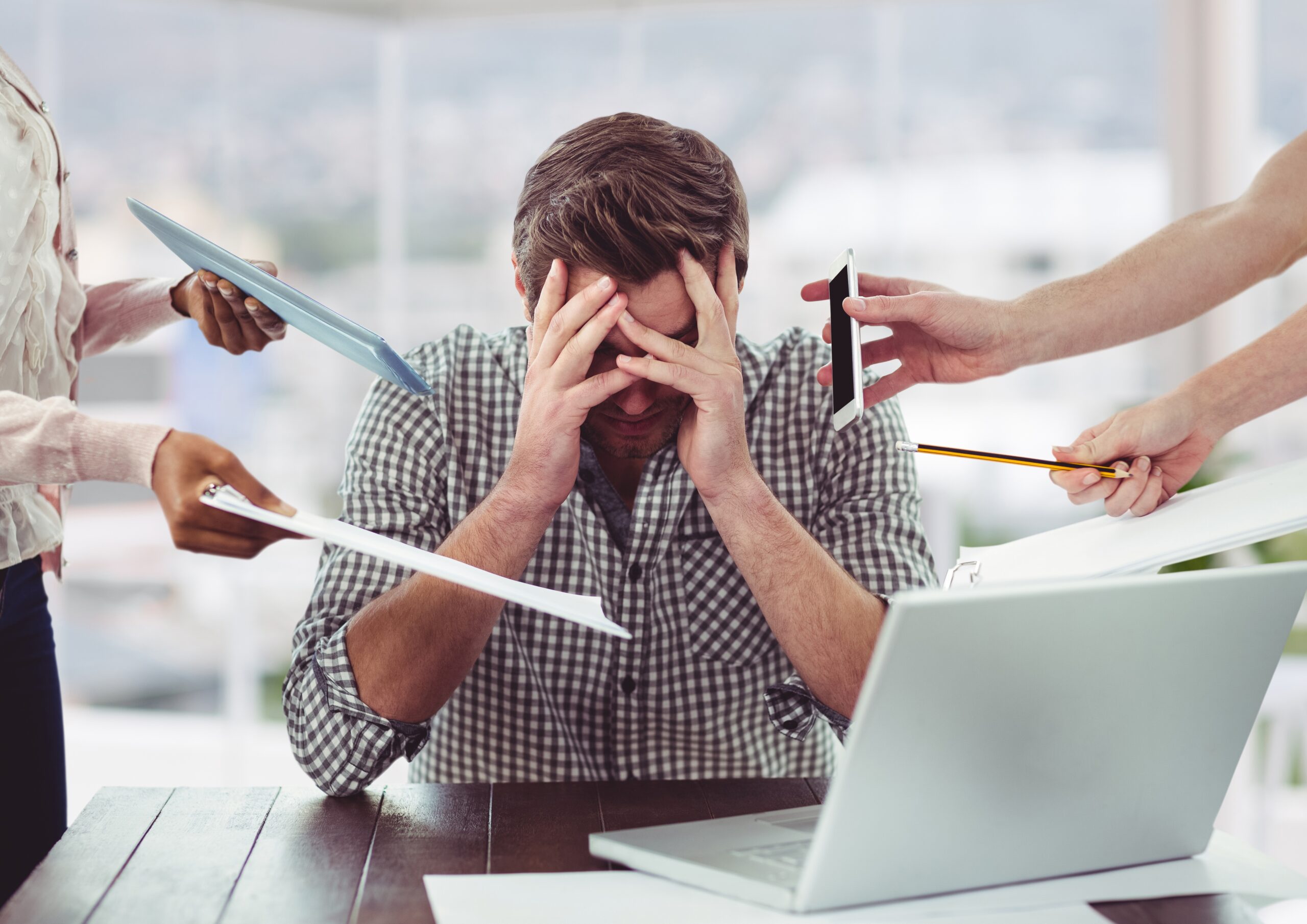
Types of Stress
It is usually said that stress is bad, harmful, and adversely affects the body and psyche. Well, it’s true, but not all of it. It is worth distinguishing stress into eustress and distress, as well as short-term and long-term stress. Stress mobilizes the body to act; it increases the level of arousal.
Eustress is the so-called positive stress, which favors a person and their effectiveness – the optimal level of arousal – and can, for example, strengthen concentration or add energy and willingness to act. During eustress, you can feel a pleasant thrill, butterflies in your stomach, and a surge of strength.
Distress is a phenomenon in which the arousal level goes beyond the area of beneficial stress and exceeds the moment of optimum (best functioning). You begin to feel the negative effects of stress more strongly. Your efficiency and quality of action decrease significantly, and remaining in this state for a long time leads to exhaustion. As you can see, from the point of view of evolution and human functioning, stress also positively impacts performance. The difficulty is learning to reduce stress levels to the optimum.
The Mechanism of Stress Action
The pattern of stress reaction depends on the duration and level of activation (strength of stress, type of stress, amount of negative stimuli).
The biological mechanism of stress is a complex process that includes reactions such as:
- Noradrenaline secretion in the brain
- Secretion of adrenaline from the adrenal medulla into the blood
- Activation of memory processes
- Secretion of cortisol from the adrenal medulla into the blood (increase in steroid hormone)
- Increased heart rate
- Increase in blood pressure
- Faster breathing
- Increase in blood glucose levels
- Increase in blood flow to muscles and the brain
Those mechanisms are responsible for two biological mechanisms: the sympathetic autonomic system and the hypothalamus-pituitary-adrenal hormonal system.
Negative Effects of Stress
Lifestyle has a significant impact on our health and well-being. Physical activity is not only about taking care of your appearance – it is effective prevention. Take care of your good mental condition, which, when attacked by stressors, contributes to many negative effects, like:
- Chronic headaches and migraine
- Stomach pain
- Muscle aches
- Lockjaw
- Increased diastolic pressure
- Increased level of total cholesterol in the blood
- Development of coronary artery disease (ischemic heart disease)
- Dysfunction of the musculoskeletal system (including pain and posture defects)
- Hormonal disorders (menstrual and fertility disorders)
- Development of gastric and duodenal ulcers
- Disturbance of the proper functioning of the digestive tract (including the digestion process), disease Crohn’s disease, irritable bowel syndrome
- Conditions lowering the body’s immunity
- Neurodermatitis (blemishes, spots, skin blemishes, eczema)
There are also some psychological effects of stress, e.g.:
- Increased risk of depression (including the risk of suicide, suicidal thoughts, suicide attempts)
- Neurosis
- Phobias
- Feeling of anxiety (even after the tense situation has ended)
- Lack of appetite and weight loss
- Eating disorders
- Insomnia
- Feeling constantly tired
- Emotional symptoms: crying, anger, worrying, forgetfulness, loss of sense of humor, impaired concentration, impaired ability to make decisions, general poorer functioning
Moreover, the behavioral effects of stress include:
- Engaging in risky and health-damaging behaviors (e.g., smoking cigarettes, drinking alcohol, taking drugs)
- Excessive criticism
- Failure to adapt to organizational requirements
- Lack of a healthy balance between work and family life
- Absenteeism
- Job dissatisfaction
- Loss of meaning in work
- Resignation from or change of job
- Emotional exhaustion
- Personalization
- Lowered self-esteem
- Decreased sense of personal achievement
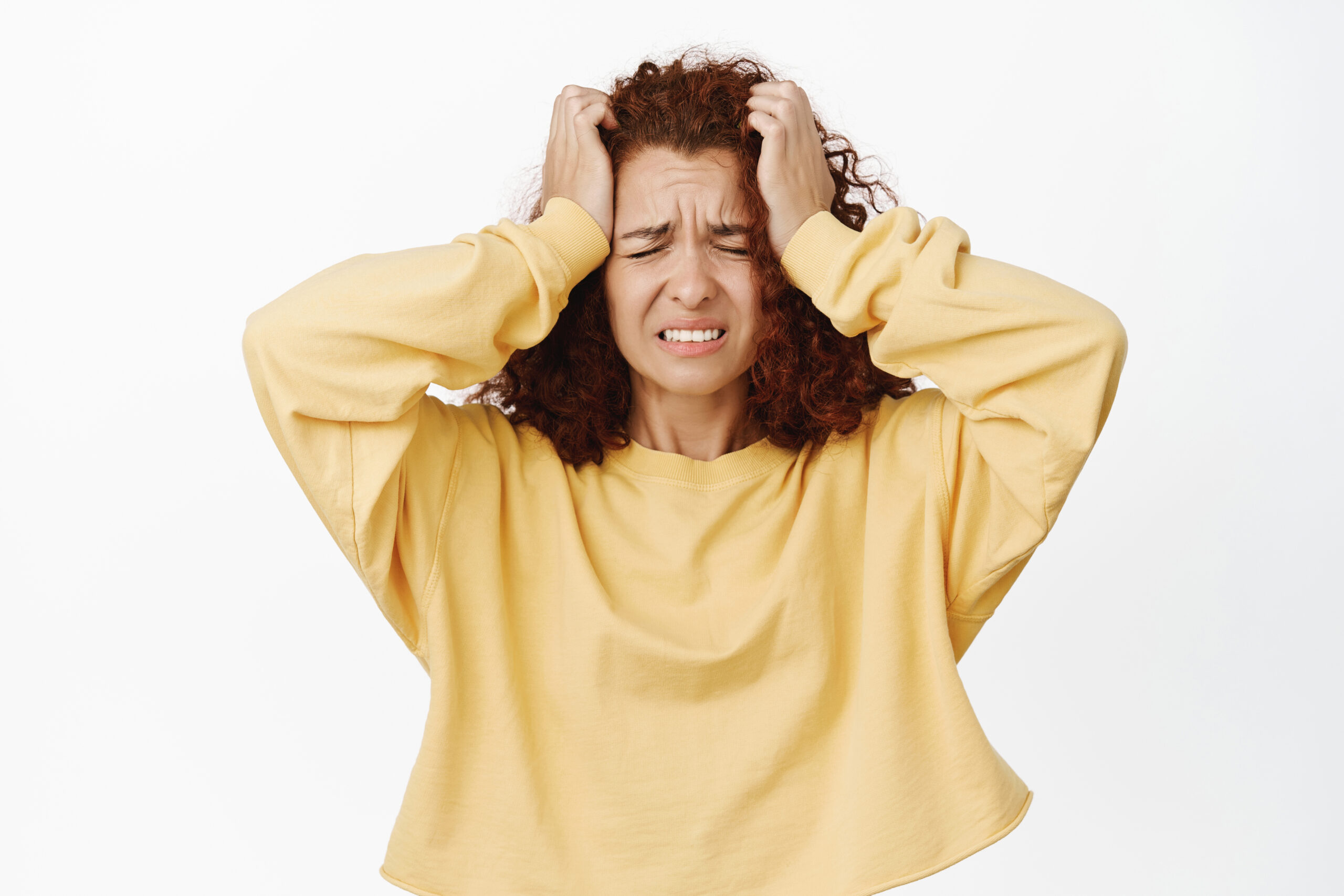
The Impact of Stress on the Body – Time Context
During short-term stress, we can observe the following:
- Increase in heart rate
- Increase in blood pressure
- Dilated pupils
- Increase in blood glucose levels
- Tachycardia – accelerated heart rate
- Rapid breathing
- Slower metabolism (reduced digestive tract activity)
- Increase in glucocorticoids
- Dry mouth
- Muscle tension
- Sweating
- Feelings of anxiety
- Increased tension
- Reduced sexual drive
- Reduced appetite
The problem of excessive stress increases with the progress of civilization and the rising standard of living.
Chronic stress leads to far-reaching changes in the body and behavior. Immune system dysfunction (reduced body resistance) contributes to the increased incidence of various diseases. Long-term stress is also a cause of the development of depression and post-traumatic stress disorder (PTSD).
Severe stress disrupts the functioning of the hippocampus – a small structure in the temporal lobe of the brain that is mainly responsible for memory. It can lead to damage to this part of the organ, as a result of which the hippocampus shrinks or does not develop properly.
Neurotic disorders are also a consequence of constant mental tension and negative emotions.
The effects of chronic stress include problems with sleep, nervousness and lower tolerance to subsequent stressors (even a seemingly trivial matter can throw you off balance), lower motivation and effectiveness of action, addictions (if the tension is relieved by, e.g., alcohol), lower well-being or even depression, increased or weight loss, decreased immunity – more frequent infections, skin problems, hair loss, chronic tension in the body resulting in pain and injuries.
Causes of Stress
Modern psychology, however, tends to approach stress relationally as an imbalance between the resources or capabilities of the individual and the demands of the environment.
Factors causing stress – stressors – can be minor problems, everyday dilemmas, or major life changes, e.g., traumatic events of catastrophic proportions affecting entire groups of people (wars, natural disasters), serious threats affecting individuals or several people.
The Social Responsiveness Rating Scale (SRRS) defines the events that are the source of stress, and the values assigned to them are arranged in descending order – from the most to the least stressful event. According to this scale, types of stressors include:
- Death of a spouse
- Divorce
- Separation or breakup
- Staying in prison
- Death of a close family member
- Severe illness or accident resulting in bodily injury
- Wedding
- Dismissal/unemployment
- Reconciliation with your spouse
- Retirement
- Sexual problems
- Change of job position
- Family conflicts
- Changes in the standard of living
- Changes in personal habits and routines
- Change of place of residence
- Changing school
- A significant change in spending free time
How to Deal with Stress?
Coping with stress will determine the individual’s cost when confronted with stress.
When stressed, we sometimes start to behave chaotically or irrationally. From predispositions, character or the so-called resistance to stress depends on the attitude we adopt in a situation of increased tension.
Coping with stress constantly changes cognitive and behavioral efforts to deal with specific external and internal demands that the person appraises as taxing or exceeding their resources.
Let’s start recognizing stressors – not only the big ones but also the small ones related to everyday life. Identified stress is an easier-to-weight enemy that needs to be “disarmed.” Let’s develop ways that trigger negative emotions and make it easier to deal with difficult situations.
Increase Your Self-awareness
To deal with stress effectively, it is worth, first of all, expanding your self-awareness and noticing when it appears most often, what exactly is a stressor for you, and clarifying it as much as possible.
A more minor and more specific stressor is much easier to deal with. Think about what resources you have (skills, opportunities, knowledge, experience, etc.) to deal with a given situation, build a specific picture of the situation you are striving for, think about what you can influence and what actions you can take and what tools do you need it to feel better and more confident in stressful situations. Negative, challenging thoughts that lower your self-confidence will not positively impact your stress level. Also, watch out for the so-called thought traps, including wishful thinking, pessimism, or blaming yourself or others. Notice and appreciate what you have instead of thinking about what you don’t have.
Awareness of the Effects
The effect of a stressful situation may be to classify it as a challenge rather than a stressor. We learn throughout our lives, and everyone has the right to make mistakes. It is worth working on yourself, becoming aware of the threats, and naming directly what triggers negative emotions in us.
Many international organizations have addressed the issue of psychosocial risks, including work-related stress. Actions have been taken to increase society’s awareness of the adverse effects of chronic stress and poor well-being.
Specialist Consultation
There are many reasons why patients visit psychologists and psychiatrists. Excessive stress has long-lasting harmful effects. It is worth deciding on a specialist consultation with a psychologist or psychiatrist. A healthy lifestyle is not only the absence of diseases but also psychophysical well-being, which is threatened by excessive stress.
Psychologists can help you, e.g., with these areas:
- Professional life
- Excessive stress
- Making an important decision
- Experiencing mourning, loss, or illness
- Divorce or breakup
- Conflicts in interpersonal relationships
- Crisis in private life

Therapy
To effectively counteract the effects of stress, it is worth considering psychological or psychiatric treatment.
The situations when should you consult a psychiatrist include:
- Referral from a general practitioner, psychologist, or psychotherapist
- Suicidal thoughts of suicide
- Long-term low mood
- Chronic feelings of depression, sadness, anxiety
- Change in diet, sexual activity, or sleep patterns
- Intrusive thoughts, habits, or behaviors
- Sudden changes in life that you cannot cope with
- Constant feelings of anxiety, helplessness, sense of loneliness, hypersensitivity, or nervousness
- Withdrawal from social and family life (isolation)
- Headaches, hand tremors, and excessive sweating that are not justified by a somatic disease
Other Techniques
Some of the techniques for dealing with stress are:
- Practicing relaxation techniques (meditation, mindfulness, breathing exercises, yoga)
- Developing interests
- Finding a hobby
- Surrounding yourself with favorable people
- Keeping in touch with your loved ones
- Taking care of the quantity and quality of your sleep
- Taking care of a balanced diet, diversifying your meals, drinking water and herbal infusions
- Regular physical activity (actively spending free time)
- Practicing rest and taking care of your needs (e.g., getting a massage, having a moment of relaxation with a book, walking in your favorite park, watching your favorite TV series or movie, listening to music, dancing, cooking something tasty, breaking away from the computer and other devices, limiting your online life, and keeping in touch with nature)
Summary
Stress is a biological reaction intended to support a person in survival – it gives them energy to fight or flight, thanks to which they can cope with the threat. Unfortunately, nowadays the mechanism that is used to protect life has become harmful. Many situations, even everyday ones, are perceived as threatening. Constantly functioning under stress brings a number of difficulties and uncomfortable symptoms that most people do not want to feel. Although stress cannot be eliminated from life, there are known and available solutions and techniques that support stress management, alleviate its effects, and make it easier to cope with it. If you feel that stress is your problem, don’t worry, you can deal with it.
Sources
- Stress and Coping with Discrimination and Stigmatization. NIH. https://www.ncbi.nlm.nih.gov/pmc/articles/PMC3110961/.
- Development and Validation of a Short Measure of Emotional, Physical, and Behavioral Markers of Eustress and Distress (MEDS). NIH. https://www.ncbi.nlm.nih.gov/pmc/articles/PMC8872528/.
- Distress vs Eustress. APA. https://www.apa.org/ed/precollege/topss/lessons/activities/critical-thinking-exercise-distress-eustress.pdf.
- The impact of stress on body function: A review. NIH. https://www.ncbi.nlm.nih.gov/pmc/articles/PMC5579396/.
- Physiology of the Autonomic Nervous System. NIH. https://www.ncbi.nlm.nih.gov/pmc/articles/PMC1959222/.
- Introduction to the Hypothalamic-Pituitary-Adrenal Axis: Healthy and Dysregulated Stress Responses, Developmental Stress and Neurodegeneration. NIH. https://www.ncbi.nlm.nih.gov/pmc/articles/PMC6057754/.
- Stress effects on the body. APA. https://www.apa.org/topics/stress/body.
- Stress. APS. https://psychology.org.au/for-the-public/psychology-topics/stress.
- Cognitive, emotional, physical, and behavioral stress-related symptoms and coping strategies among university students during the third wave of COVID-19 pandemic. NIH. https://www.ncbi.nlm.nih.gov/pmc/articles/PMC9523087/.
- The Short-Term Stress Response – Mother Nature’s Mechanism for Enhancing Protection and Performance Under Conditions of Threat, Challenge, and Opportunity. NIH. https://www.ncbi.nlm.nih.gov/pmc/articles/PMC5964013/.
- Physiology, Stress Reaction. NIH. https://www.ncbi.nlm.nih.gov/books/NBK541120/.
- STRESS AND HEALTH: Psychological, Behavioral, and Biological Determinants. NIH. https://www.ncbi.nlm.nih.gov/pmc/articles/PMC2568977/.
- The Social Readjustment Rating Scale. APA. https://psycnet.apa.org/record/1968-03998-001.
- Coping Mechanisms. NIH. https://www.ncbi.nlm.nih.gov/books/NBK559031/.
- 11 healthy ways to handle life’s stressors. APA. https://www.apa.org/topics/stress/tips.
- Psychotherapies. NIH. https://www.nimh.nih.gov/health/topics/psychotherapies.
